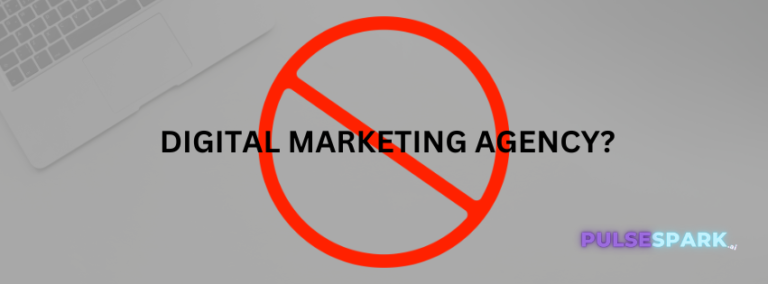do digital marketing agencies create content
In the digital age, content is king. It’s the lifeblood of any successful online marketing strategy.
But who creates this content? Do digital marketing agencies play a role in content creation?
The answer is a resounding yes. Digital marketing agencies are often at the forefront of content creation. They craft compelling narratives that resonate with target audiences.

These agencies understand the power of content. They know that high-quality, relevant content can drive engagement, boost SEO, and increase conversions.
But content creation is more than just writing blog posts or designing infographics. It’s about telling a brand’s story in a way that connects with consumers.
It’s about understanding the audience, their needs, and their interests. It’s about creating content that is not only informative but also engaging and shareable.
In this comprehensive guide, we’ll delve deeper into the role of digital marketing agencies in content creation. We’ll explore the types of content they create, the strategies they use, and the benefits they offer to businesses.
Understanding Digital Marketing Agencies and Content Creation
Digital marketing agencies are experts in online marketing. They help businesses reach their target audience through various digital channels.
These agencies offer a range of services. From SEO and PPC to social media marketing and email campaigns. But one of their key offerings is content creation.

Content creation is a critical component of digital marketing. It involves producing engaging, relevant content to attract and retain a clearly defined audience.
The goal is to drive profitable customer action. This could be anything from making a purchase to signing up for a newsletter.
The Role of Content in Digital Marketing
Content plays a pivotal role in digital marketing. It’s the foundation upon which all other strategies are built.
Without content, SEO efforts would be futile. Social media campaigns would lack substance. Email marketing would be ineffective.
Content is what attracts visitors to a website. It’s what keeps them engaged and encourages them to take action.
Moreover, content helps establish a brand’s authority and credibility. It positions the brand as a thought leader in its industry.
Types of Content Created by Digital Marketing Agencies
Digital marketing agencies create a wide variety of content. The type of content depends on the client’s goals, target audience, and marketing strategy.
Here are some common types of content that digital marketing agencies create:
- Blog posts: These are informative articles that provide value to the reader. They can help improve SEO and drive traffic to a website.
- Videos: Videos are highly engaging and can boost conversion rates. They can be used on social media, websites, and email campaigns.
- Infographics: These are visual representations of data or information. They are easy to understand and shareable.
- Social media posts: These are short, engaging pieces of content designed to be shared on social media platforms.
- Email newsletters: These are regular emails sent to a list of subscribers. They can include news, updates, and promotional content.

Each type of content serves a different purpose. But they all work together to create a cohesive, effective digital marketing strategy.
How Content Creation Fits into a Broader Digital Marketing Strategy
Content creation is not a standalone process. It’s an integral part of a broader digital marketing strategy.
A digital marketing strategy is a plan of action. It outlines how a business will use various digital channels to achieve its marketing goals.
Content creation plays a key role in this strategy. It’s the fuel that drives digital marketing.
Without content, there would be nothing to share on social media. Nothing to optimize for search engines. Nothing to send in email campaigns.
Content is what attracts and engages the audience. It’s what convinces them to take action. Whether that’s making a purchase, signing up for a newsletter, or sharing a post on social media.
The Relationship Between Content Marketing and SEO
Content marketing and SEO are closely linked. They work together to improve a website’s visibility on search engines.
SEO, or Search Engine Optimization, is the process of optimizing a website to rank higher on search engine results pages. The goal is to attract more organic (non-paid) traffic to the website.
Content plays a crucial role in SEO. Search engines like Google favor websites that regularly publish high-quality, relevant content.
But it’s not just about quantity. The content must also be optimized for SEO. This means using relevant keywords, adding meta tags, and creating a user-friendly website structure.
In short, content marketing and SEO are two sides of the same coin. They complement each other to create a powerful digital marketing strategy.
The Benefits of Outsourcing Content Creation
Outsourcing content creation to a digital marketing agency can offer several benefits. One of the main advantages is access to expertise.
Digital marketing agencies have a team of experts. They are skilled in various aspects of content creation. This includes writing, editing, SEO, graphic design, and social media management.
Another benefit is time efficiency. Creating high-quality content can be time-consuming. By outsourcing, businesses can focus on their core operations while the agency handles the content.
Cost-effectiveness is another advantage. Hiring an in-house team for content creation can be expensive. Outsourcing can often be a more affordable option.
Lastly, agencies can provide a fresh perspective. They can bring new ideas and strategies to the table. This can help businesses to innovate and stay ahead of the competition.
Case Studies: Successful Content Creation by Agencies
Case studies can provide valuable insights into the success of content creation by agencies. Let’s look at a few examples.

The first case study involves a tech startup. They hired a digital marketing agency to create a series of blog posts. The result was a 200% increase in website traffic and a 150% increase in leads.
In another case, a retail business outsourced their social media content. The agency created engaging posts that resonated with the target audience. This led to a 50% increase in social media followers and a 30% increase in sales.
A B2B company hired an agency to create a white paper. The content was well-researched and provided valuable insights. It was downloaded over 5,000 times and generated over 100 qualified leads.
These case studies demonstrate the potential of outsourcing content creation. They show how agencies can create content that drives traffic, generates leads, and increases sales.
The Content Creation Process in Digital Marketing Agencies
The content creation process in digital marketing agencies is systematic and strategic. It begins with understanding the client’s business, goals, and target audience.
Next, the agency conducts keyword research. This helps to identify the terms and phrases the target audience uses when searching online. The content is then tailored around these keywords to improve SEO.
The agency also develops a content calendar. This outlines what content will be created, when it will be published, and on which platforms. It ensures a consistent flow of content.
The creation phase involves writing, designing, and producing the content. This could be blog posts, videos, infographics, or social media posts. The content is then reviewed and edited to ensure it meets the highest standards.
Finally, the content is published and promoted. The agency uses various channels to distribute the content and reach the target audience. This could include social media, email marketing, or the client’s website.
The Importance of Storytelling and Audience Understanding
Storytelling is a powerful tool in content creation. It helps to engage the audience and make the content more memorable. Digital marketing agencies use storytelling to convey the brand’s message and values in a compelling way.
Understanding the audience is also crucial. It helps the agency to create content that resonates with the target market. This involves researching the audience’s needs, interests, and online behavior.
The content should also be tailored to the audience’s stage in the buyer’s journey. For example, informational content is suitable for the awareness stage. In contrast, product-focused content is more appropriate for the decision stage.
Furthermore, the content should be adapted to the platform it will be published on. For instance, short and engaging posts work well on social media. Long-form content, such as blog posts or white papers, is more suitable for the website.
In conclusion, storytelling and audience understanding are key to effective content creation. They help to ensure the content is engaging, relevant, and impactful.
Tailoring Content to Different Platforms and Using Data Analytics
Digital marketing agencies understand the importance of tailoring content to different platforms. Each platform has its unique characteristics and user behavior. For instance, Instagram is visual-centric, while LinkedIn is more professional.
Agencies create content that fits the platform’s style and audience. For instance, they might create short, engaging videos for TikTok. For LinkedIn, they might create long-form articles or industry reports.
Data analytics play a crucial role in this process. Agencies use analytics to understand what content performs best on each platform. They analyze metrics like engagement rate, click-through rate, and conversion rate.
These insights help agencies to refine their content strategy. They can identify what type of content resonates with the audience. They can also determine the best time to post to maximize engagement.
In conclusion, tailoring content to different platforms and using data analytics are key to successful content marketing. They help agencies to create content that is engaging, relevant, and effective.
The Impact of High-Quality Content on Business Goals
High-quality content can have a significant impact on business goals. It can drive traffic to the website, increase brand awareness, and generate leads. It can also establish the brand as an authority in its industry.
Content also plays a crucial role in SEO. Search engines favor websites that provide valuable, relevant content. This can improve the website’s ranking in search results, leading to more organic traffic.
Moreover, high-quality content can increase conversion rates. It can persuade potential customers to take action, such as making a purchase or signing up for a newsletter. This can directly contribute to sales and revenue.
Content can also help to build a loyal customer base. By providing valuable content, brands can build trust with their audience. This can lead to repeat business and customer referrals.
In conclusion, high-quality content can have a significant impact on business goals. It is a powerful tool for driving traffic, generating leads, and building brand authority.
Creativity, Originality, and the Challenges of Content Creation
Creativity and originality are key elements in content creation. Digital marketing agencies strive to create content that stands out in the crowded digital landscape. They aim to produce content that is not only informative but also engaging and memorable.
However, creating original and creative content is not without its challenges. One of the main challenges is the sheer volume of content available online. With so much content being produced every day, it can be difficult to create something truly unique.
Another challenge is staying up-to-date with the latest trends and technologies. The digital landscape is constantly evolving, and what worked yesterday may not work today. Agencies need to be agile and adaptable to stay ahead of the curve.
Despite these challenges, the importance of creativity and originality cannot be overstated. Original, creative content can capture the audience’s attention, engage them, and ultimately drive them to take action.
In conclusion, while creativity and originality in content creation come with their own set of challenges, their importance in the digital marketing landscape is undeniable.
The Role of Keyword Research and CMS in SEO-Driven Content
Keyword research is a critical component of SEO-driven content creation. It involves identifying the keywords that your target audience is using to search for products or services like yours. These keywords are then incorporated into the content to improve its visibility in search engine results.
Content Management Systems (CMS) play a crucial role in this process. A CMS allows agencies to manage and organize their content efficiently. It also provides tools for SEO optimization, such as meta tags and keyword density checks.
Moreover, a CMS can help with the scheduling and publishing of content. This ensures that content is published consistently, which is important for SEO. It also allows for easy updating and editing of content, which can improve its relevance and accuracy over time.
In conclusion, keyword research and CMS are essential tools for creating SEO-driven content. They help digital marketing agencies to create content that is not only engaging and relevant but also visible to their target audience.
Measuring Content Performance and the Evolution of Content Marketing Trends
Measuring content performance is a crucial part of any content marketing strategy. It helps digital marketing agencies understand what works and what doesn’t. This understanding allows them to refine their strategies and improve their content over time.
There are various metrics that agencies can use to measure content performance. These include engagement metrics like shares, likes, and comments, as well as conversion metrics like leads generated or sales made. Other important metrics include website traffic, bounce rate, and time spent on page.
The evolution of content marketing trends also plays a significant role in content creation. As the digital landscape changes, so do the strategies and tactics used by digital marketing agencies. Staying up-to-date with these trends is crucial for creating content that resonates with the audience and achieves business goals.
Some of the current trends in content marketing include the use of video content, personalized content, and interactive content. There is also a growing emphasis on creating high-quality, long-form content that provides real value to the audience.
In conclusion, measuring content performance and staying abreast of content marketing trends are key aspects of content creation. They help digital marketing agencies create content that is effective, relevant, and engaging.
The Future of Content Creation: AI, Machine Learning, and Emerging Technologies
The future of content creation is exciting, with new technologies like AI and machine learning playing an increasingly important role. These technologies can help digital marketing agencies create more effective and engaging content.
AI and machine learning can be used in various ways in content creation. For example, they can help with keyword research, content optimization, and personalization. They can also help with content distribution, ensuring that content reaches the right audience at the right time.
Emerging technologies like virtual reality (VR) and augmented reality (AR) are also shaping the future of content creation. These technologies can create immersive experiences that engage the audience in new and exciting ways.
However, while these technologies offer exciting possibilities, they also present new challenges. Agencies need to stay up-to-date with these technologies and learn how to use them effectively. They also need to consider ethical issues, such as data privacy and transparency.
In conclusion, the future of content creation is likely to be shaped by AI, machine learning, and other emerging technologies. These technologies offer exciting opportunities for digital marketing agencies, but they also present new challenges that need to be addressed.
Conclusion: The Significance of Content Creation in Digital Marketing
Content creation is a vital component of digital marketing. It’s the fuel that drives engagement, builds brand awareness, and ultimately leads to conversions. Without compelling, high-quality content, digital marketing strategies would fall flat.
Digital marketing agencies play a crucial role in content creation. They bring expertise, creativity, and strategic thinking to the table. They understand the digital landscape and know how to create content that resonates with the target audience.
However, content creation is not a one-size-fits-all process. It requires a deep understanding of the audience, a clear brand voice, and a strategic approach. It also requires staying up-to-date with the latest trends and technologies in the digital marketing world.
In conclusion, content creation is a critical aspect of digital marketing. Whether you’re a business owner, a marketing manager, or an entrepreneur, understanding the role of content creation in digital marketing can help you make informed decisions and choose the right digital marketing agency for your needs.




